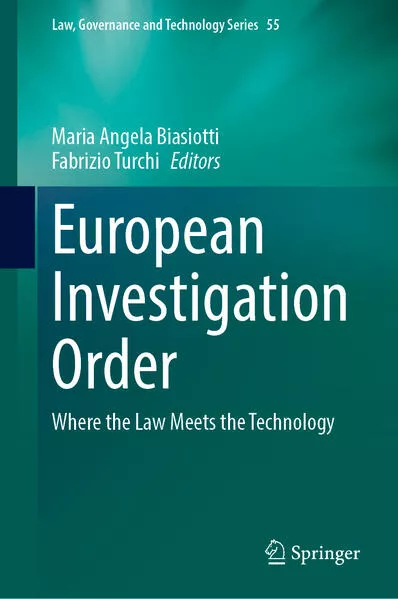
- Publikationen ca: 2
- Fragen & Antworten
Maria Angela Biasiotti
Maria Angela Biasiotti is a Research Director at IGSG-CNR. She has a degree in Law (1999) and a PhD in Information Technologies and Law (2008) from the Faculty of Law, Bologna University. In 2001, she started working at the Institute of Legal Information Theory and Techniques (CNR-ITTIG, now CNR-IGSG). In March 2014, she coordinated the EVIDENCE Project (European Informatics Data Exchange Framework for Court). In March 2018, she coordinated the EVIDENCE2e-Codex Project (Linking EVIDENCE into e-CODEX for EIO and MLA procedures in Europe). Since April 2020 she has coordinated the TREIO Project (Training on EIO). She combines a solid practical experience in law, she has practised as a lawyer in public law, administrative law and EC law for an Italian leading law firm) with a broad knowledge in ICT and law. Her main research areas involving legal informatics, computer law, legal information modelling and accessing, and legal information documentation management and dissemination, computer law, digital evidence, data protection. She is the author of many scientific works and contributions presented at international conferences. She organised conferences, workshops and summer schools in her domain of research and activity.
Fabrizio Turchi is a Technology Executive at IGSG-CNR. His research activities are the applications of IT to legal domain, legal standard and legal drafting, use of the XML technologies to devise legal documents models. He has been designing and developing web applications, formal parsers to identify parts and structures that exist inside textual documents and natural language processing techniques applied to legal documents for knowledge extraction, such as automated text classification and anonymity processes based on Named Entity Recognition (NER). His recent interests focus on the standard representation of the data and meta data of digital evidence, by using the UCO/CASE ontology. He has been involved in many European Projects dealing with the exchange of digital evidence among Competent Authorities in the EU Member States: EVIDENCE (European Informatics Data Exchange Framework for Court); EVIDENCE 2e-CODEX (Linking Evidence into e-CODEX for EIO and MLA procedures in Europe); EXEC-II (Electronic Xchange of e-Evidences); INSPECTr (Intelligence Network and Secure Platform for Evidence Correlation and Transfer).European Investigation Order
In the era of globalisation, cross-border crimes are becoming increasingly common. The nature of these crimes is complex, and cross-border evidence exchange is, therefore, crucial to the successful prosecution of these offences. The exchange of evidence between countries can provide invaluable assistance in solving crimes that have an international dimension.
European Investigation Order
In the era of globalisation, cross-border crimes are becoming increasingly common. The nature of these crimes is complex, and cross-border evidence exchange is, therefore, crucial to the successful prosecution of these offences. The exchange of evidence between countries can provide invaluable assistance in solving crimes that have an international dimension.

